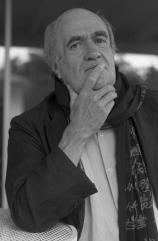The Empty Family: Stories
Review
The Empty Family: Stories
The nine stories in Colm Tóibín’s THE EMPTY FAMILY are set in such locations as Ireland, Spain and the U.S. Their time frames range from 19th-century England to the 1970s through the present day. Though disparate in several ways, these offerings share certain elements. They reflect themes of life, loss and solitude, but more importantly, beautiful writing that tugs at the heart of the reader in ways that words simply cannot describe.
The Irish-born Tóibín is the author of six novels, including THE BLACKWATER LIGHTSHIP, THE MASTER (winner of the Los Angeles Times Book Prize) and BROOKLYN (winner of the Costa Book Award). He has taught at Stanford, the University of Texas, and Princeton. Whether the setting is Spain, Ireland or the U.S., Tóibín’s writing shows a remarkable recognition of history and locale. Reading “One Minus One,” he describes a time period when he taught in New York City as “the city was about to enter its last year of innocence.” By that brief descriptive passage, Tóibín does far more than establish time. Through the power of literary economy, he describes a moment in history we will never forget.
The title story of the collection is set in California, a coastal locale the narrator treats as a substitute for his Irish homeland. “The Empty Family” reminds us of family, death and home. The narrator understands that home is more than a place; it’s life, a combination of experience, objects and family. One can never leave home and family.
Frances Rossiter is the main character in “Two Women.” A respected film set designer “almost precisely between seventy-five and eighty,” she comes back to Dublin for a movie assignment. Her return brings memories of a long-ago love affair. By chance she meets the widow of her lover and comes to understand how both of them were a part of his life, each offering him a part of their lives that the other could not. Through those two distinct contributions, they helped make his life complete. It’s a poignant and enlightening meeting.
“One Minus One” is another story of loss and displacement. It finds the narrator living in Texas, thinking of his mother on the anniversary of her death. Six years ago, he returned to Ireland for her funeral. Recounting the details through thoughts of his ex-lover and the loss of that relationship, he recalls all he has lost. Tóibín is a man who has travelled around the globe, but clearly part of him has never left Ireland.
The longest contribution to THE EMPTY FAMILY is “The Street,” a novella set in Barcelona. The story focuses on Pakistini immigrants who are exploited and controlled and their struggle to live in post-Franco Spain. Two of the inhabitants of an immigrant house, Malik and Abdul, eventually fall in love. Their relationship is uncovered, and they suffer the consequences of ostracism. Somehow they persevere because, as Abdul eventually says to Malik, “My real family is you.”
The stories here contain a certain autobiographical element, reflecting the issues inherent in the modern post-1950s generation. The common themes of regret and longing may make the book difficult to read without great emotion. Still, the extraordinary tone set by this beautiful writing makes THE EMPTY FAMILY a wonderful collection.
Reviewed by Stuart Shiffman on March 28, 2011
The Empty Family: Stories
- Publication Date: January 3, 2012
- Genres: Fiction, Short Stories
- Paperback: 288 pages
- Publisher: Scribner
- ISBN-10: 143919596X
- ISBN-13: 9781439195963




